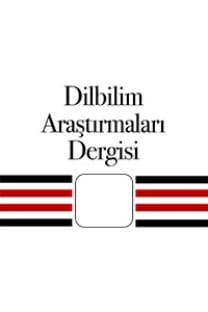Subjects in pazar and Ardesheni Laz
Bu çalışmanın başlıca amacı, Ardeşen Lazcasındaki durum biçimbirimlerinin kaybolmasının, yapısal-anlamsal özne ayrımı üzerindeki etkilerini özellikle öznelerle ilişkilendirilen eylemsel uyum biçimbirimleri açısından tartışmaktır. Halen durum biçimbirimlerini koruyan Pazar Lazcasına kıyasla Ardeşen Lazcasının yapısal ve anlamsal özneleri ayırt etmek için daha farklı özne uyum biçimleri geliştirdiği ve böylelikle bir anlamda nominatif-akuzatif sistemlere benzer özellikler kazandığı gösterilecektir.
Subjects in Pazar and Ardesheni Laz
The aim of this study is to discuss the impact of the loss of case morphology on the structural vs. semantic subject asymmetry in Ardesheni Laz with specific emphasis on verbal agreement morphology associated with subjects. We will show that in comparison to Pazar which still retains its case morphology Ardeshen has acquired different subject agreement patterns to encode the distinction between structural vs. semantic subjects, which in a sense made it become similar to nominative-accusative systems.
___
Aissen, J. 1974. The Syntax of Causative Constructions. Ph.D. Dissertation, Harvard University.Emgin, B. 2009. Finiteness and Complementation in Laz. Unpublished MA thesis, Boğaziçi University.
Göksel, A. 1993. Levels of Representation and Argument Structure in Turkish. Ph.D. Dissertation, SOAS, University of London.
Harley, H. 1995. Subjects, Events and Licensing. Ph.D. Dissertation, MIT.
Harris, A. C. 1981. Georgian Syntax: A study in relational grammar. Cambridge University Press.
Harris, A. C. 1982. Georgian and the Unaccusative Hypothesis, Language 58: 290-306.
Holisky, D. A.1991. Laz. The Indigenous Languages of the Caucasus. A.C.Harris (ed.) NY.
Keenan, Edward L. 1976. Towards a Universal Definition of Subject. In Subject and Topic. Charles Li, (ed.), New York: Academic Press. pp. 303333.
Kojima, G. And İ. Avcı Bucaklişi 2003. Laz Grammar. Chivi Yazıları, Istanbul.
Laka, I. 2007. Deriving Split Ergativity in the progressive. In Ergativity.
Emerging Issues Series, Johns, A., Massam, D. and Ndayiragije, J. (Eds.), Vol. 65, Springer, NY, pp. 173-196.
Legate, J. 2007. Split Absolutive. In Ergativity. Emerging Issues Series, Johns, A., Massam, D. and Ndayiragije, J. (Eds.), Vol. 65, Springer, NY, pp. 143-172.
McCloskey, J. 1997. Subjecthood and Subject Positions. in Liliane Haegeman, ed., Elements of Grammar: Handbook in Generative Syntax. Dordrecht: Kluwer. pp. 197235.
Öztürk, B. 2004. Case, Referentiality and Phrase Structure. Ph.D. Dissertation, Harvard University.
Öztürk, B. 2005. Case, Referentiality and Phrase Structure. Linguistik Aktuell, Amsterdam: John Benjamins.
Sezer, E. 1991. Topics in Turkish Syntax. Ph.D. Dissertation, Harvard University.
Ura, H. 2007. A parametric syntax of aspectually conditioned split-ergativity. In Ergativity. Emerging Issues Series, Johns, A., Massam, D. and Ndayiragije, J. (Eds.), Vol. 65, Springer, NY, pp. 111-142.
Vamling, K. 1989. Complementation in Georgian. Lund University Press. Zimmer, K. 1976. Some Constraints on Turkish Causativization. In The Grammar of Causative Constructions, M. Shibatani (ed.), NY: Academic Press, 399-412
- ISSN: 1300-8552
- Yayın Aralığı: Yılda 2 Sayı
- Başlangıç: 1990
- Yayıncı: Dilbilim Derneği
